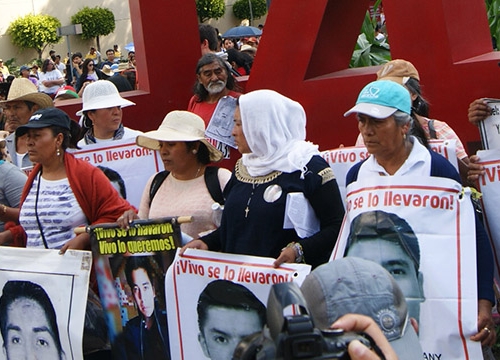Voices from the Ground: Forced Disappearance in Mexico
Event


Wikimedia/PetrohsW
The Case of the Forced Disappearance of 43 Students in Mexico
Is there any Justice after 10 Years? Reflections with the Former Prosecutor
Ten years have passed since the tragic disappearance of 43 students from the Ayotzinapa Rural Teachers' College in Mexico, carried out by security forces collaborating with a drug cartel. Despite the severity of the case, the resilience of the relatives and their lawyers, and the unprecedented international response it sparked, neither the full truth nor justice has been achieved. This case is emblematic of a broader crisis in Mexico, where approximately 117,000 people are currently missing, with 76,000 of those disappearances occurring in the last decade.
This online event invites Omar Gómez Trejo, the former lead prosecutor of the special criminal unit created to investigate the Ayotzinapa case, who was previously involved with the Group of Experts for the case appointed by the Inter-American Commission on Human Rights, to reflect on the complexities of achieving accountability in such a high-stakes situation. What progress has been made? What remains unresolved? What lessons can be drawn from this long struggle for truth and justice? Is the concept of transitional justice applicable in this case?
Speaker
Omar Gómez Trejo is a lawyer from National University of Mexico (UNAM) and has a Master Degree from FLACSO. He served as the executive secretary of the Interdisciplinary Group of Independent Experts (GIEI) for the Ayotzinapa case. Subsequently, he became the lead Prosecutor of the Special Unit for the Investigation and Litigation of the Ayotzinapa case in Mexico. Prior to this, he worked for 12 years in the Office of the High Commissioner for Human Rights at UN in different countries. Currently, he is a school visitor to the Human Rights Center at the Law School in Berkeley University.
Moderation
Ana Srovin Coralli and Agustina Becerra Vazquez








